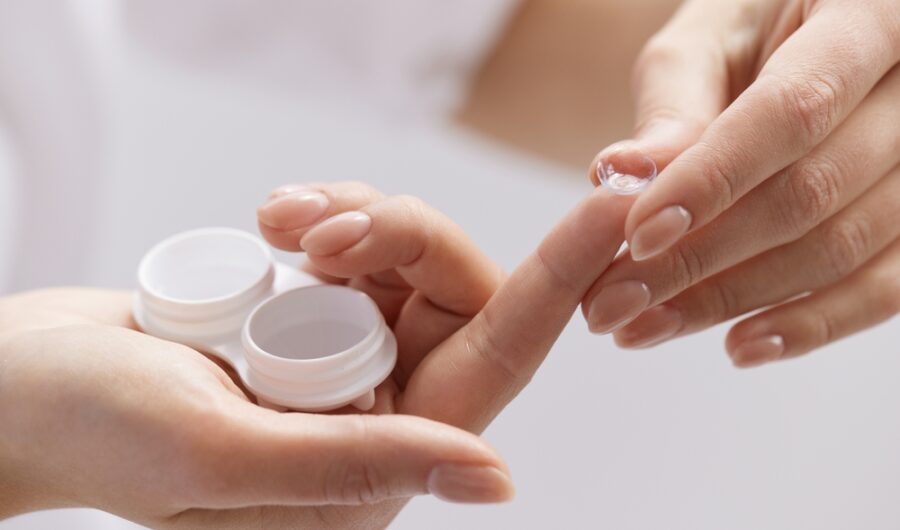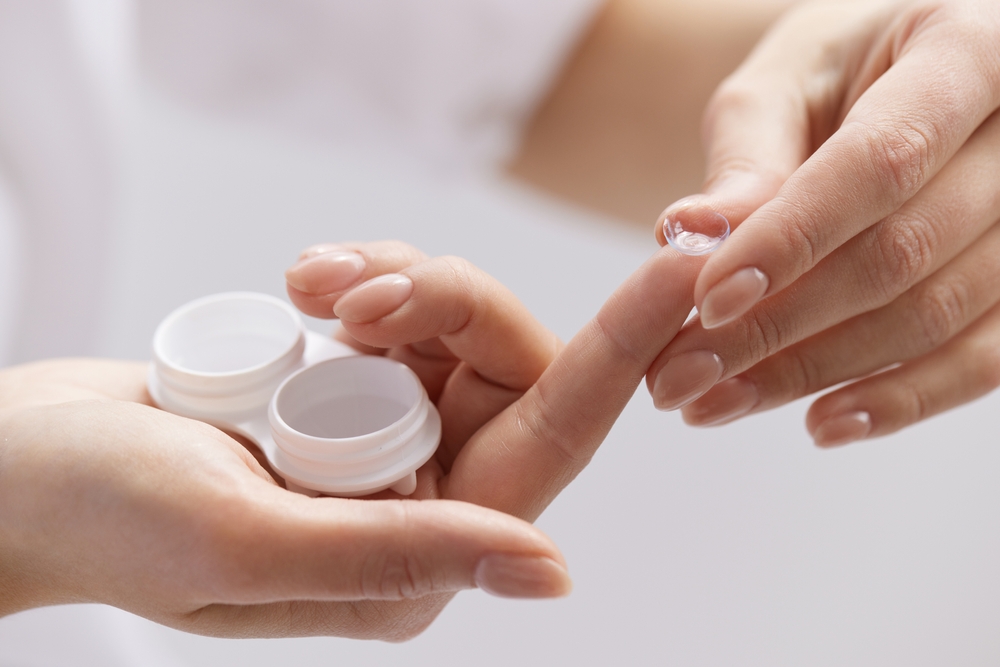Contact lenses are growing in popularity year on year. For those who wear glasses, there may come a point where you grow tired of your spectacles and want to throw them in their case for good. The good news is you can do! Contact lenses can be worn for those both short and long-sighted.
If you’re considering getting contact lenses, it’s wise to know the dos and don’ts before going any further. That way, you can be confident you’re doing everything right, looking after them properly, and ultimately, getting the most usage out of them.
Do Consult an Optician
Before going down the route of contact lenses, it’s essential you schedule an appointment with an optician. They can perform a comprehensive eye exam, determine your prescription, and give advice on the best suitable type of contact lenses for your eyes. It’s important not to skip this step as the last thing you want is to pick any old lenses and get an eye infection. Once you’re approved, you can try out an array of lenses. There are coloured contact lenses you can purchase from Lenstore that can enhance your natural eye colour. They sell a variety of contact lenses from a plethora of well-known brands.
Don’t Ignore Signs of Eye Infections
You must pay close attention to any signs of redness, pain, discomfort, or sensitivity to light when wearing contact lenses. Any of these could signal an eye infection that needs to be checked out and treated immediately. We appreciate you may love your contact lenses, but if they’re causing you more harm than good, they need to be taken out as you may find you’re allergic to them.
Do Follow Proper Hygiene
This is a must! Cleanliness is paramount when it comes to contact lenses. Therefore, make sure to always wash your hands with soap and water before picking up your lenses. Also, avoid using any scented or oily soaps that could leave a residue on your hands. This is because they can easily transfer to your lenses and result in irritation.
Don’t Use Tap Water or Saliva to Clean Lenses
To keep your contact lenses in tip-top condition, you need to use a sterile solution recommended by an optician. This means foregoing water or saliva to do the job! While you may think these options are fine, there’s a huge risk of bacteria and microorganisms going onto your lenses which can cause serious eye infections like conjunctivitis. If you’ve run out of sterile solution, simply head to a nearby store to pick a new bottle up.
Do Adhere to a Cleaning Routine
Once you start using contact lenses, there will be a cleaning routine you need to learn and master. You need to stick at it too! Unfortunately, some contact lens wearers forego their routine and quickly regret their decision! Whether you purchase lenses from an optician or from a contact lens manufacturer, you will be given instructions that you must adhere to. Some of the typical instructions include regularly cleaning and disinfecting to prevent the build-up of bacteria.
Don’t Wear Lenses Longer Than Recommended
When you pop a pair of contact lenses in, it’s easy to forget they’re even there. Unfortunately, too many people have suffered the consequences of overwearing their lenses. The last thing you want is to be dealing with eye dryness, discomfort, or even more severe complications. As we’ve mentioned, make sure to follow the instructions you’re given. Even wearing your lenses for a few hours longer than advised can cause irritation and soreness.
Do Replace Lenses as Recommended
Contact lenses have a limited lifespan. Whether you opt for dailies or longer, they certainly don’t last forever! Therefore, you need to ensure you’re replacing them as instructed. How often you change your lenses will depend on the type and wearing schedule. Never overuse your lenses as this can accumulate bacteria, become less comfortable, not to mention heighten your risk of an eye infection.
Don’t Use Expired Solutions
When you’re cleaning and disinfecting your contact lenses, make sure the solution you’re using is in date. They have an expiry date for a reason! If it’s out of date, it’s time to grab a new one. Expired solutions can lose their effectiveness, fail to properly disinfect, and potentially introduce harmful contaminants to your lenses.
Do Remove Lenses Before Sleep
Before you hit the hay, make sure you’ve taken your contact lenses out, unless they’re specifically designed for extended wear. If they’re not, you could be doing all kinds of damage to your eyes and vision without realising. You don’t want to be dealing with a corneal infection as they can be incredibly painful!
Don’t Wear Lenses When Eyes are Irritated
If you’re currently suffering from eye irritation like a red eye, you should not put a pair of contact lenses in! If your eyes are red or itchy, simply wait until your symptoms clear up. Should you wear lenses when your eyes are already irritated, this can exacerbate the problem and potentially cause more severe problems later down the line.
Do Store Lenses Properly
When you’re not using your contact lenses, where do you place them? The answer shouldn’t be on the kitchen side or exposed on your bathroom sink! You need to ensure they’re stored in a clean lens case that’s filled with fresh disinfecting solution. Remember to replace the solution after each time you use them and get into the routine of cleaning the case regularly. Doing so will stop the growth of bacteria from building.
Don’t Share Lenses
Believe it or not, there are actually people out there who share their contact lenses! This is a big no-no. You need to remember that contact lenses are personal medical devices, meaning you must never hand them over to someone else. Even if they just want to try them on for the fun of it, there’s a major risk of picking up an eye infection. If you have a loved one who is desperate to try your lenses on, simply guide them to purchasing their own!
If used correctly, contact lenses can be a brilliant product that changes your life forever. As long as you’re keeping on top of cleaning and disinfecting, and understand the dos and don’ts above, there’s a low risk of you developing an eye infection.















